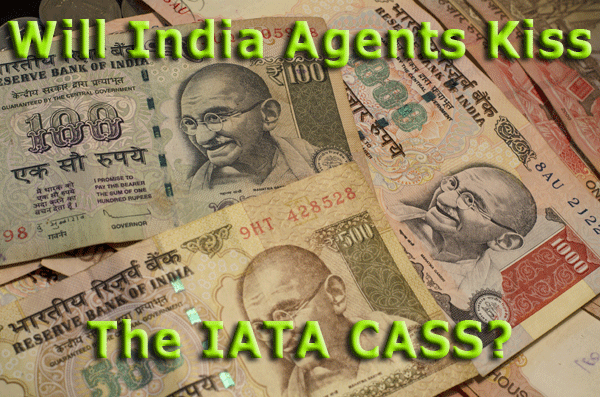 |
Will the Air Cargo Agents Association of India
(ACAAI) accept the decision of the nine-year-old case that had been going
on at the Competition Commission of India (CCI)?
The CCI recently put an end to the case that
had been going on since December 2012, nine years ago when the ACAAI said
that IATA was guilty of anti-competitive practices.
Simply put, the cargo agents association pointed
a finger at IATA for determining the rate of the agents' commission highlighting
that the rules of the agency's Cargo Accounts Settlement Systems (CASS)
were unfair.
FlyingTypers has been reporting about
the case since it was filed.
In fact, the furor over CASS erupted during a
trade show in Mumbai.
So no one should hold their breath and assume
the ACAAI will go quietly into that good night.
The CCI ordered recently that "no case of
contravention of the provisions of the Act is made out against any of
the Opposite Parties and the matter is directed to be closed forthwith"
after it found out that there had been no violation of competitive norms.
The CCI also pointed out that ACAAI's charges
were about the accreditation of cargo agents and the introduction of IATA's
CASS in India.
For its part, IATA welcomed the CCI order and
also pointed out that the outcome of the case only emphasized the fact
that IATA had been operating in accordance with the competition laws of
India.
In the many twists and turns that the case took,
ACAAI lawyers, contend that IATA, comprised of approximately 260 international
airlines operating globally, has controlled the market in a manner that
is "adverse to competition by virtue of its dominant position.”
“IATA,” ACAAI asserts “had
appropriated to itself the right to accredit air cargo agents in India
as well as in other countries.
“Without such accreditation,” air
cargo agents said, “we are unable to carry out our business with
airlines, as most airlines globally are members of IATA.”
It was pointed out that contrary to similar rules
prevailing elsewhere, the CASS Rules as prescribed by IATA airlines were
anti-competitive, "being unilateral and one-sided, and agents have
no say in the same".
ACAAI said that "IATA also unilaterally
prescribes the criteria for accreditation of air cargo agents, including
the imposition of many financial terms and conditions and untenable penalties.
“This clearly indicates abuse of dominant
position by IATA."
The ACAAI lawyers also mentioned that "IATA
has also abrogated to itself the status of a Self Regulated Organization
(SRO) in India without sanction by any Indian authority."
Pay Me My Money Down
It is no overstatement to say that ACAAI and
IATA have not been the best of working partners.
Almost a year ago, in April 2020, with COVID-19
raging all round in India, ACAAI highlighted and brought forward problems
that air freight forwarders were facing during the 21-day lockdown that
India was going through at that time, due to the conflicting directives
from authorities and regulators. The biggest challenge was the payment
of handling charges through IATA's Cargo Account Settlement System (CASS)
to international carriers bringing or taking goods from India.
 Sunil Arora, President of the Air Cargo Agents Association of India (ACAAI),
speaking to FT pointed out that more than 500 IATA-authorized forwarders
were unable to pay the cargo handling charges to the carriers if they
were not given an extension (the payments were due on April 1 and IATA
had given an extension of nine days until April 9).
Sunil Arora, President of the Air Cargo Agents Association of India (ACAAI),
speaking to FT pointed out that more than 500 IATA-authorized forwarders
were unable to pay the cargo handling charges to the carriers if they
were not given an extension (the payments were due on April 1 and IATA
had given an extension of nine days until April 9).
Nine days was not enough time, said Arora, “primarily
because of the lockdown”.
At that time IATA had said that since banks were
not part of the lockdown, the payments could be done electronically.
So, the date would not be changed from April
9, 2020.
As you read this, the beat and the heat goes
on.
Tirthankar Ghosh
|




